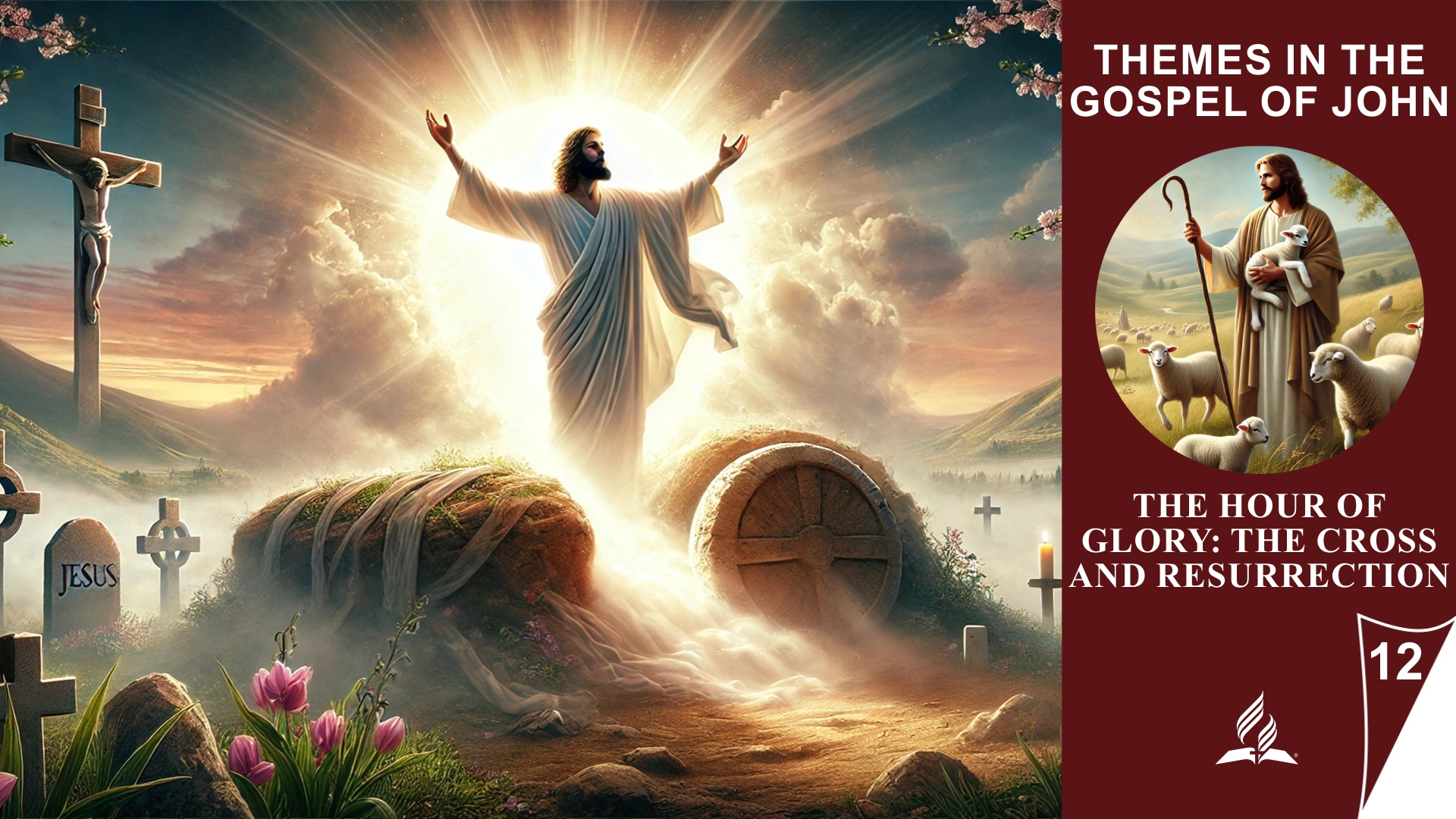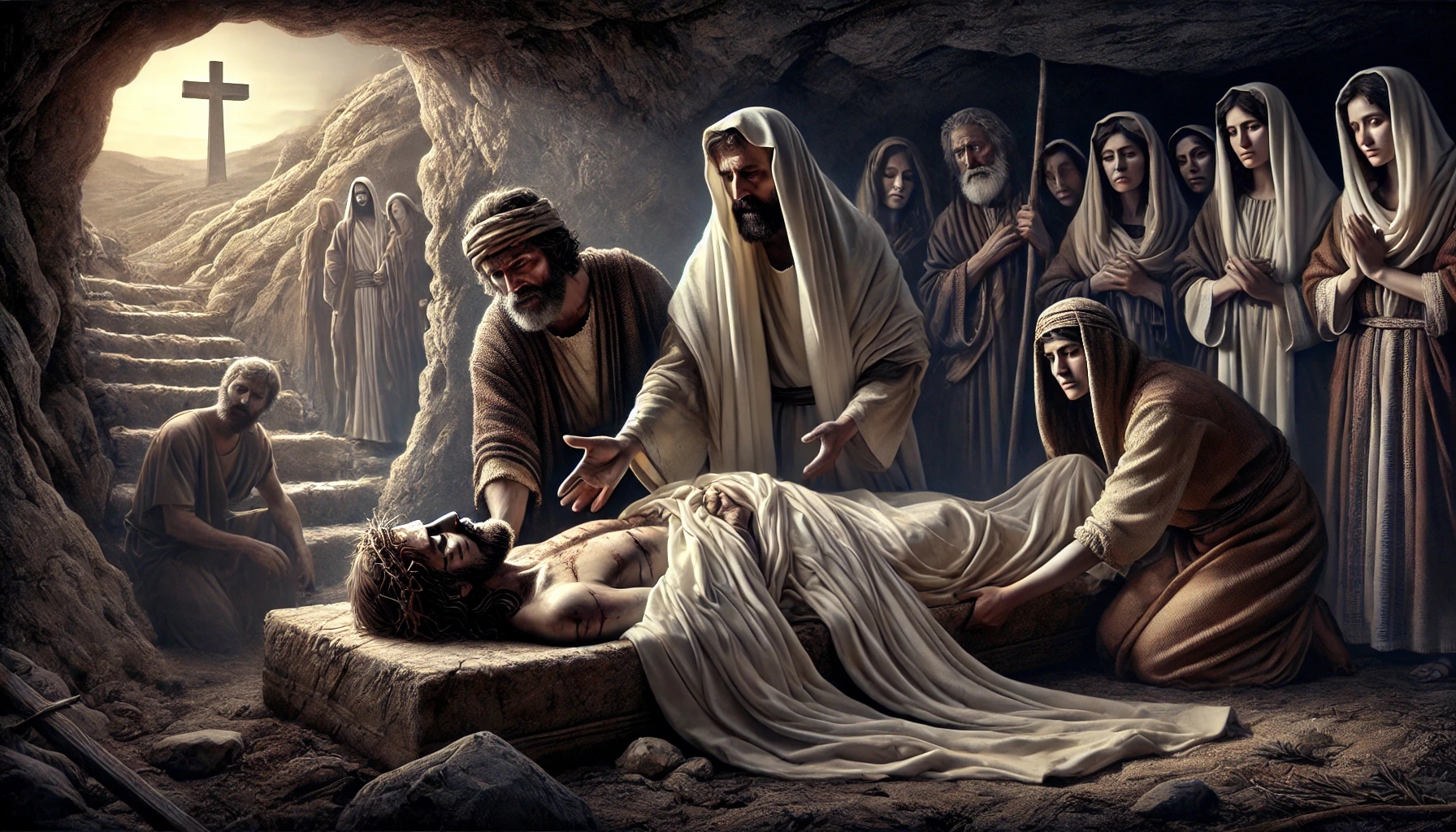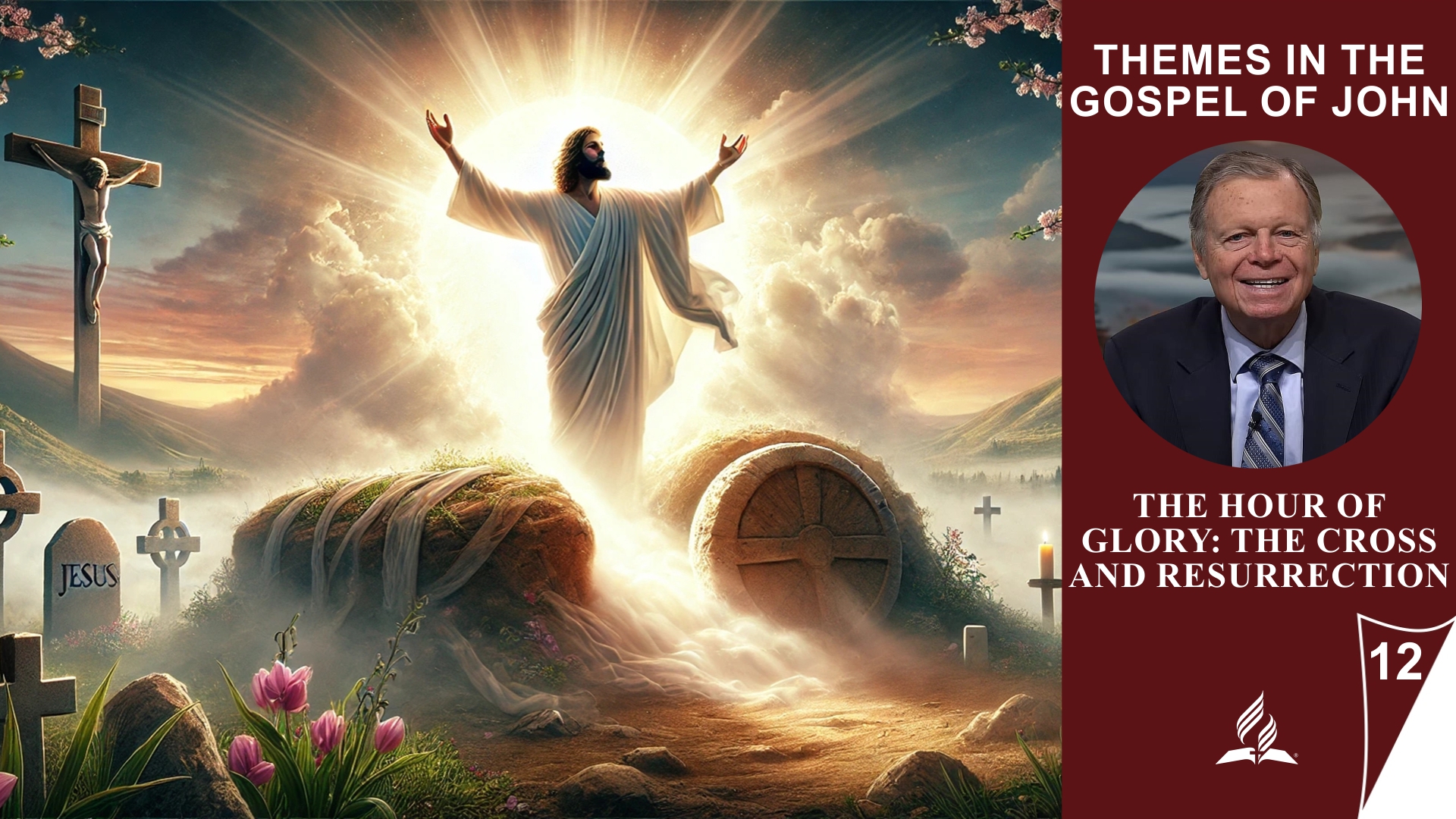

Lesson 12.The Hour of Glory: The Cross and Resurrection
The Cross and the Resurrection: The Turning Point of History
Lesson 12 leads us to the pinnacle of the Christian faith: the crucifixion and resurrection of Jesus Christ. These central events of salvation history reveal in their depth God’s love, justice, and power. At the cross, Jesus completes His work of redemption by bearing the punishment for our sins and opening the way to God. Through His resurrection, He triumphs over death and gives us a living hope for new life.
This lesson invites us to understand the significance of the cross and resurrection not only intellectually but also to experience them in our personal faith and daily lives. It reminds us that Jesus’ sacrifice brings us peace and forgiveness, and His resurrection forms the foundation for our hope and trust in God’s promises.
12.1 What is Truth?
The Truth Stands Before Us: Pilate’s Missed Opportunity
Read John 18:33–38. What are Pilate and Jesus discussing?
In John 18:33–38, we witness a profound confrontation between Pilate and Jesus that goes far beyond immediate political and legal questions. It is remarkable how Jesus steers the conversation to challenge Pilate to engage with the truth.
Pilate first asks if Jesus is the King of the Jews. This is not merely a political question; it opens the door to a much greater reality. Jesus does not answer directly but asks Pilate whether he has come to testify to the truth or if he seeks to test Him. With this turn, Jesus invites Pilate to reflect and question the source of his judgment. This shows that truth cannot be defined solely by external reports or opinions but requires inner recognition.
However, Pilate’s reaction reveals a typical human weakness: he avoids confronting the truth. His irritated follow-up question (“Am I a Jew?”) shows that he distances himself from the personal significance of this question. Instead of seeking answers, he is guided by prejudices and societal pressure.
Jesus seizes the opportunity to reveal a crucial truth: His kingdom is not of this world, and He has come to testify to the truth. This truth is not abstract but personal: everyone who is from the truth hears His voice. Thus, Jesus makes it clear that truth is not just a philosophical concept but takes shape in Himself. He is the truth (John 14:6), and in Him shines the light that overcomes darkness (John 1:5).
Pilate’s question, “What is truth?” remains unanswered because he does not wait to hear it. This is a tragic moment: Pilate stands before the embodiment of truth, yet he withdraws. His prejudices, internal conflict, and external pressures prevent him from recognizing the truth.
The Gospel of John repeatedly emphasizes that the truth is found in Jesus. However, Pilate misses the opportunity to experience this truth because he cannot free himself from his fears and prejudices. For us, this is an invitation to overcome our own prejudices and fears to seek and embrace the truth in Jesus. The question, “What is truth?” remains relevant today and requires courage, patience, and openness to find the answer.
How do you understand the concept of Jesus as the truth?
The concept of Jesus as the truth is deeply rooted in Christian theology and reveals the unique relationship between God, humanity, and reality itself. In the Gospel of John, this idea is particularly emphasized, and I understand it in several interconnected dimensions:
-
Jesus as the Embodiment of Divine Truth
-
Jesus is described as “the Word” who “became flesh” (John 1:14). He is the perfect revelation of God through whom people can recognize the truth about God, their own existence, and the way to redemption.
-
This truth is not only intellectual or philosophical but a living reality manifested in Jesus. Through His life, teachings, death, and resurrection, Jesus reveals the true nature of God: love, grace, justice, and holiness.
-
-
Truth as Relationship, Not Just Knowledge
-
Jesus says in John 14:6, “I am the way, the truth, and the life.” This indicates that truth lies in a relationship with Him. It is not merely a concept that can be understood intellectually but a reality experienced in communion with Him.
-
Those “from the truth” recognize His voice (John 18:37). This means there must be an inner willingness to be led by Jesus to grasp the truth.
-
-
Truth as a Liberating Force
-
In John 8:32, it says, “And you will know the truth, and the truth will set you free.” This truth in Jesus frees us from the chains of error, sin, and fear. It realigns humanity, frees us from false notions about God, ourselves, and the world, and gives us the opportunity to live in an authentic relationship with God.
-
-
Truth as Light in Darkness
-
The Gospel of John often contrasts truth with darkness and error. Jesus, the light of the world (John 8:12), brings a truth that illuminates darkness. He exposes the lies of evil and reveals humanity’s true purpose: communion with God.
-
-
Jesus as Truth in the Context of Life and Death
-
On the cross, Jesus demonstrates the ultimate truth about God’s love and the nature of redemption. His words, “It is finished” (John 19:30), mark not only the completion of His work but also the affirmation that everything He said and did is true.
-
Through His resurrection, Jesus attests that God’s truth is not only philosophical or moral but has the power to overcome death and grant new life.
-
-
Truth as a Challenge
-
The encounter between Jesus and Pilate in John 18 shows that truth can be uncomfortable. Pilate asks, “What is truth?” without genuinely wanting the answer. This scene reminds us that truth often presents a challenge, questioning our prejudices, fears, and desire for control.
-
Conclusion:
Jesus as the truth means that He is the absolute and ultimate revelation of God’s nature, plan, and love. This truth is not something we comprehend only intellectually but something that is meant to transform our lives. In Jesus, truth is not just spoken but lived and experienced, and it calls us to live in authentic relationship with God and to see the world in His light.
The connection between the concept of Jesus as the truth and our everyday life and faith lies in the practical and personal impact that this truth has on our thinking, actions, and our relationship with God and others. Here are some concrete approaches:
-
Truth as Guidance in Daily Life
Jesus as the truth provides clear guidance in a world full of conflicting opinions and values. His life, teachings, and example serve as our compass to make decisions characterized by love, justice, and humility. In daily life, this means:
-
Our words and actions should be marked by honesty, as Jesus Himself is the truth.
-
We can trust that Jesus will guide us in difficult situations when we are inspired by His truth.
Example: When facing a difficult decision, we can ask ourselves, “Does this choice align with what Jesus taught and lived?”
-
Truth as Liberation from Fears and False Notions
Jesus says in John 8:32, “The truth will set you free.” His truth frees us from the burdens of guilt, fear, and self-deception. It allows us to see ourselves and others as God sees us—with love and grace.
-
We no longer need to try to justify ourselves before God or others but can live in the freedom that the truth in Christ brings.
-
The truth of Christ also helps us shed the false identities imposed by the world (e.g., pressure to perform, consumerism, social comparisons).
Example: In daily life, this can mean not being dependent on others’ opinions but living in the assurance that we are accepted and loved in Jesus.
-
Truth as the Foundation for Relationships
Jesus teaches that genuine relationships must be based on truth and love. Relationships marked by dishonesty or selfish motives cannot endure. His truth calls us to:
-
Address conflicts with truth and love instead of ignoring or sugarcoating them.
-
Practice forgiveness because Jesus has shown us the truth about God’s infinite forgiveness.
Example: In a difficult relationship situation, we might ask ourselves, “Am I willing to be open and truthful while also acting in love?”
-
Truth as Light in Darkness and Doubt
In daily life, we often experience uncertainty, doubt, or moments when we feel lost. Jesus as the light and truth (John 8:12) offers guidance and hope:
-
In moments of doubt, we can turn to Jesus, who shows us His truth—whether through the Bible, prayer, or fellowship with other believers.
-
His truth brings clarity and peace where there is confusion and worry.
Example: When facing a challenging life situation, we can turn to Jesus and trust that His truth will show us the next step.
-
Truth as Active Faith
The truth in Jesus is not only a recognition but a power that transforms our lives. It calls us to testify to this truth through our actions:
-
Promote justice where there is injustice.
-
Stand up for the truth, even when it is uncomfortable.
-
Live out our faith actively by advocating for others and embodying God’s love.
Example: In the workplace or school, we can advocate for integrity, even when it would be easier to compromise.
-
Truth as a Challenge
As Pilate demonstrates, truth can be uncomfortable. It challenges our prejudices, fears, and habits. Jesus calls us to confront the truth, even if it means questioning ourselves:
-
Are we willing to be corrected by God’s truth?
-
Are we ready to be guided by Jesus’ truth, even when it goes against societal norms or personal convenience?









